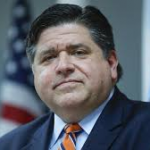If you hold a professional license in Illinois, the Illinois Department of Financial and Professional Regulation (IDFPR) holds your career in its hands. If they deny your Illinois professional license renewal, notify you of a complaint, launch an investigation, or start disciplinary proceedings against you, everything is on the line.
Everything you worked so hard for, everything you studied for, every bit of time and energy and money you’ve invested in your career depends on the decisions these regulators make. And if you attempt to navigate the complex and often unfair IDFPR investigative and disciplinary process on your own without the help of an Illinois professional license defense lawyer, you are taking a huge gamble with your future.
Unfortunately, many otherwise intelligent and prudent professionals take that gamble only to later regret it when their Illinois professional license renewal is denied or the IDFPR takes disciplinary action that results in the suspension or loss of their license or other damaging sanctions.
To take from the movie The Untouchables, going up against the IDFPR without an experienced Illinois professional license defense attorney in your corner is like bringing a knife to a gunfight.
Here are three reasons you need to hire a professional license lawyer when the IDFPR threatens your career:
-
You Don’t Know What You Don’t Know
The policies and procedures that govern IDFPR license applications and renewals, investigations, hearings, and imposition of sanctions are unique, complicated, and often unwritten and informal. Even skilled and experienced attorneys who do not practice before IDFPR can find themselves at a loss when dealing with licensure issues. You may be the target of a completely meritless client/patient complaint; you may have all of the facts on your side and the documentation or witnesses to prove it. But all of your arguments and evidence may never see the light of day if you don’t know the proper way to present your case.
-
You May Blow Your Chance To Resolve Things Quickly and Favorably
Your lack of knowledge of the process and how IDFPR prosecuting attorneys think and work also means you may miss out on opportunities to resolve your case sooner, cheaper, and with a more positive outcome. The ability to effectively reach a negotiated resolution with prosecutors depends on understanding the range of consequences, the risks involved in proceeding to a full hearing, and the likelihood of obtaining a successful result. Unless you have had extensive experience defending your professional license (which is hopefully not the case), you will be at an overwhelming disadvantage in negotiations with IDFPR prosecuting attorneys.
-
The Deck Is Stacked Against You
Even worse, the process can be manifestly unfair and stacked against you. Experienced and aggressive prosecutors have your license in their sights, and the hearing officer who will determine your fate is not necessarily independent and unbiased. IDFPR hearing officers are employed and paid by the IDFPR, just as the prosecuting attorneys are. Whether a hearing officer is consciously biased or not, the fact that their paychecks are coming from the same folks seeking to discipline a respondent creates an implicit conflict of interest and calls into question the fairness of the entire process.
You are no doubt intelligent and know your profession well, but don’t make the mistake of thinking that you can or should handle an IDFPR investigation on your own. Your reputation, career, and livelihood are at stake. Now is not the time to take a flyer and hope for the best.
Louis Fine: Chicago Professional License Defense Attorney
As a former Chief Prosecuting Attorney and administrative law judge for IDFPR, I have seen the serious consequences that an adverse enforcement decision can have on professionals who suddenly find their future in disarray. I understand how and why the Department decides to pursue investigations, how it handles negotiations, and how to approach formal proceedings in a way that gives my clients the best possible chance of a positive and expeditious outcome when Illinois licensing issues arise.
Please give me a call at (312) 236-2433 or fill out my online form to arrange for your free initial consultation. Together, we will get you back to your clients and your career.


